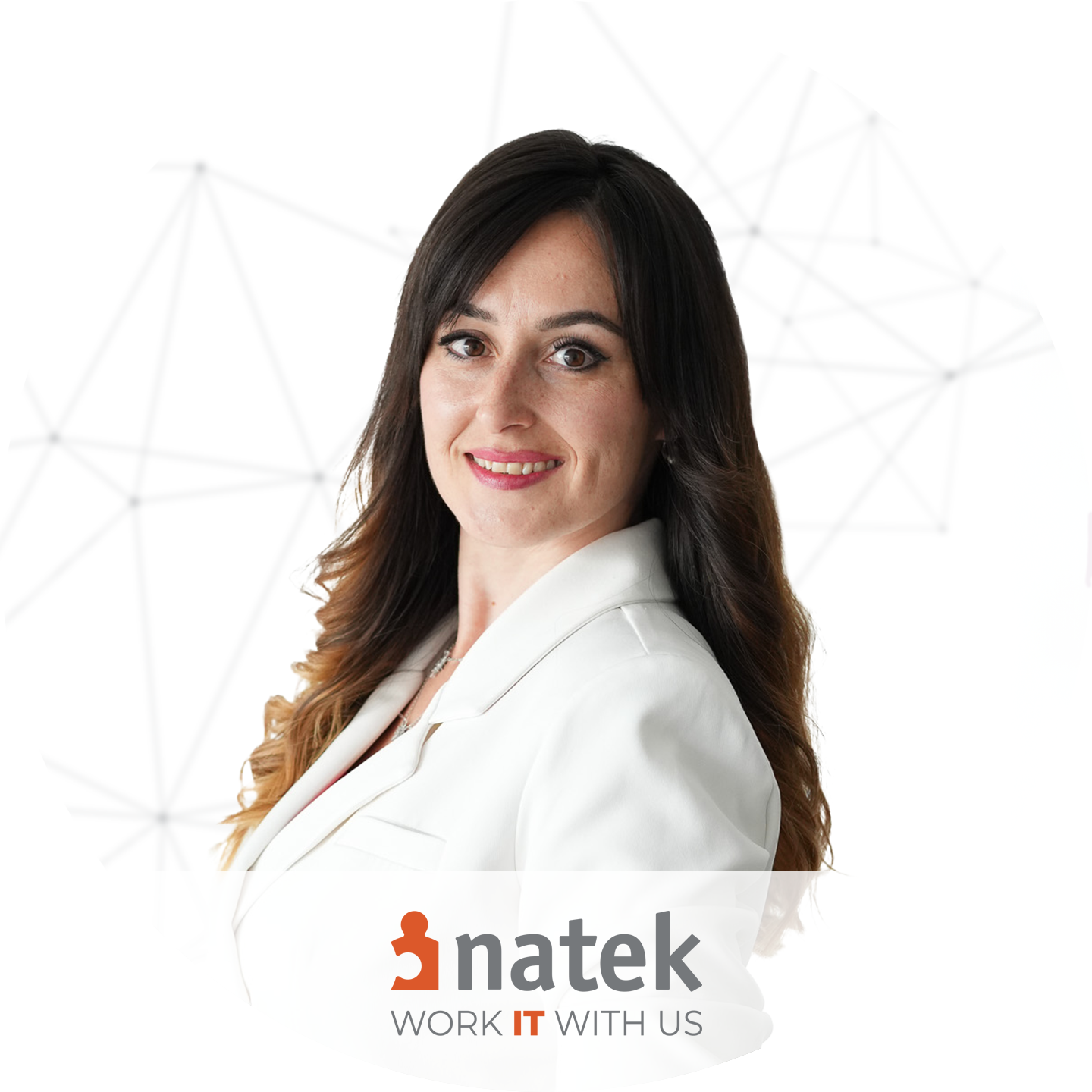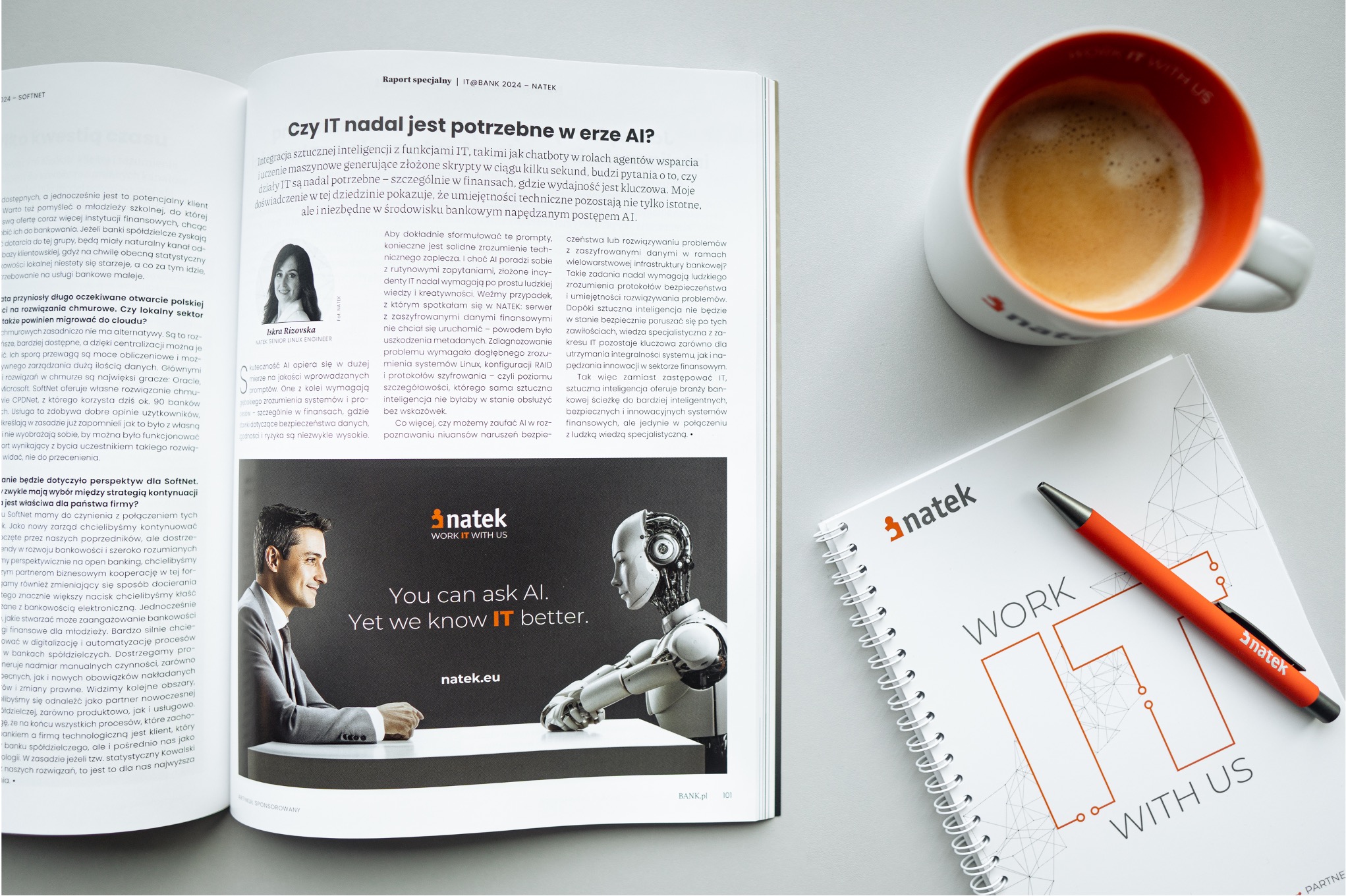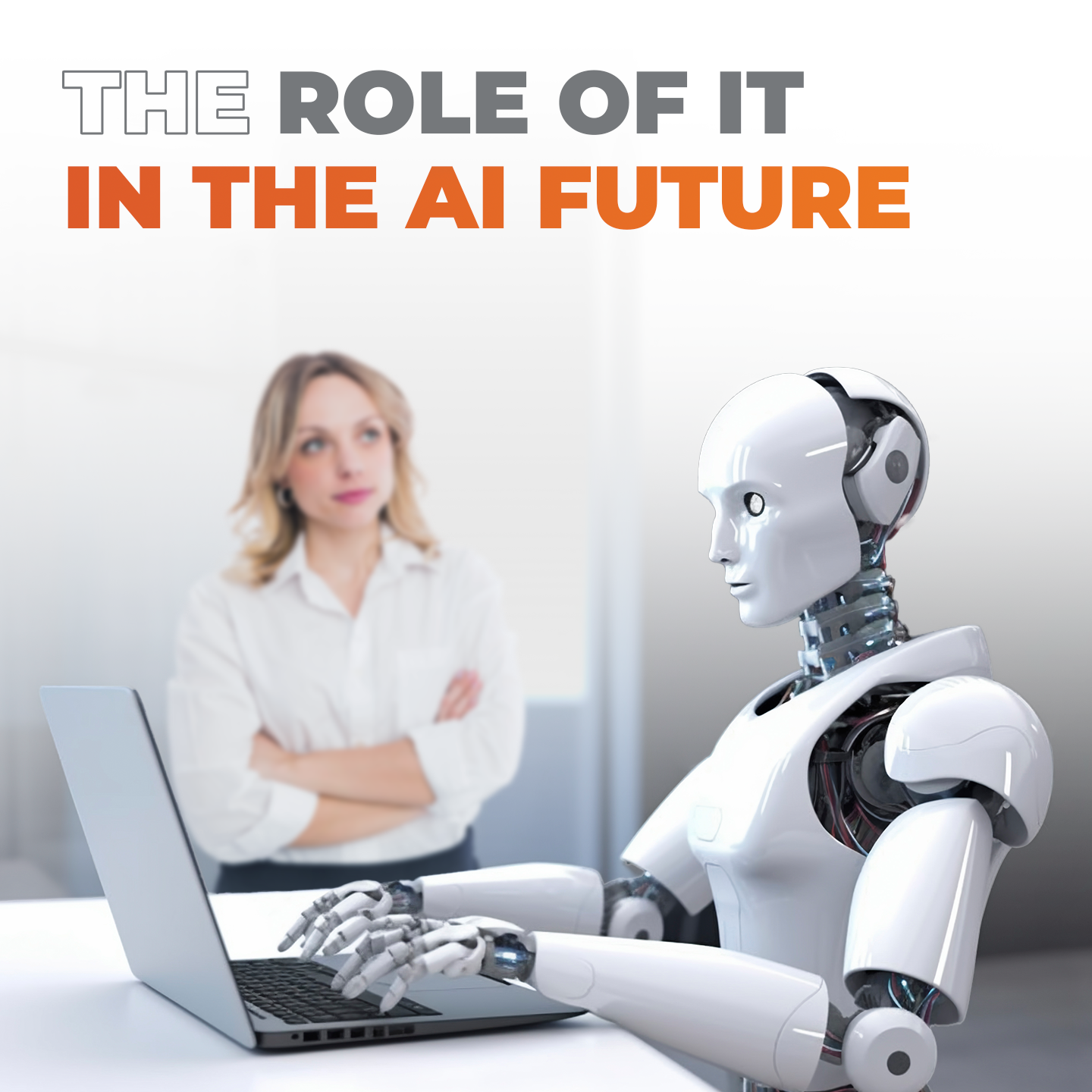The rapid growth and adoption of AI in IT has transformed industries, automating tasks that once required human expertise. AI-powered chatbots now handle IT support requests, and machine learning models generate complex scripts within seconds. These advancements have led many to question: Can we truly rely on machines to replace skilled IT professionals? With AI tools becoming increasingly sophisticated, is there still a place for human expertise in the world of IT, especially within the financial sector, where efficiency, security and compliance are critical? As we see these technologies evolve, will the rise of AI-powered solutions lead to job loss in IT, or does it open up new opportunities for skilled professionals?
In a world where AI can diagnose technical issues and automate processes, what role do IT professionals play in ensuring system reliability and security? And perhaps most importantly, how can AI and human expertise collaborate to enhance IT functions and safeguard critical financial systems?
While these questions raise valid concerns, real-world scenarios demonstrate that IT professionals remain indispensable in ensuring system reliability, security, and innovation. This article explores how AI is transforming the IT landscape, why human expertise is still crucial, and how IT teams can work with AI to create more secure, efficient, and innovative systems.
Case Study: AI vs. human expertise in IT troubleshooting
The following real-world case highlights why AI alone cannot replace IT professionals. A critical server failure involving encrypted financial data posed a complex challenge for our customer – a large company specializing in IT infrastructure management and transformation for commercial banks across Europe. The system, running Red Hat Linux 8 on an HP hardware RAID, failed to boot due to metadata corruption in the Logical Volume Manager (LVM).
At first glance, an AI-powered troubleshooting assistant, a product of advancements in computer science, might have suggested general recovery methods using AI models, but without deep system understanding, it could not diagnose the root cause effectively. NATEK Senior Linux Engineer, Iskra Rizovska manually investigated the failure using fdisk and forensic analysis. The findings revealed that the LVM metadata had been overwritten with an incorrect partition table, preventing access to financial data. Without specialized knowledge of RAID configurations, Linux storage structures, and encryption protocols, AI alone could not resolve the issue. AI systems, while powerful in processing and analyzing data, still lack the nuanced understanding required for such complex troubleshooting.
To recover the data, our expert reconstructed the LVM metadata, identified the correct logical volume mappings, and carefully restored access without compromising encryption integrity. Data analysis was crucial in identifying the correct logical volume mappings. This intricate process required specialized knowledge of RAID configurations, Linux storage structures, and encryption protocols - areas where AI lacks the problem-solving depth of human expertise. Data processing also played a significant role in managing large data volumes during the troubleshooting process.

“Had the user been able to pose specific questions, AI tools would have become a perfect replacement for Linux engineers. But in reality, troubleshooting complex issues requires deep technical knowledge and analytical thinking that AI cannot yet replicate.”
Iskra Rizova, NATEK Senior Linux Engineer
This real-world example underscores how, despite advanced AI’s capabilities, IT specialists remain critical for navigating complex failures - especially in high-stakes financial environments where security, compliance, and precision are non-negotiable.
Security risks: Can artificial intelligence replace human judgment?
Beyond troubleshooting, AI-driven IT solutions raise concerns about security. Can AI reliably detect and mitigate nuanced security breaches or troubleshoot encrypted data anomalies? While AI technologies can assist in real-time security monitoring, human oversight remains essential for interpreting complex threats and making real-time decisions. The traditional goals of AI research include learning, reasoning, knowledge representation, planning, natural language processing, perception, and support for robotics.
For instance, establishing a secure remote connection to a compromised server requires advanced authentication, encryption, and network security knowledge, ensuring compliance with strict financial regulations. Computer vision is crucial in analyzing visual inputs for security purposes, enhancing the ability to detect and respond to threats. AI may provide recommendations, but it lacks the contextual awareness needed for high-risk decision-making. Machine learning plays a significant role in enhancing decision-making by analyzing large volumes of data and improving over time.

“Who would trust an AI to establish a remote connection to a server through multiple layers of security? That’s unlikely! Complex authentication and encryption protocols still require human oversight.”
The future: AI as a tool, not a replacement
Rather than replacing IT roles, AI offers an opportunity for IT professionals to enhance their skills. By integrating AI into their workflows, IT teams can automate routine processes using deep learning, optimize system performance, and focus on strategic innovation. However, AI remains a tool that requires human expertise for effective implementation.
As seen in real-life scenarios, AI cannot troubleshoot hardware failures, recover corrupted encryption metadata, or navigate multi-layered security architectures without human intervention. Neural networks play a crucial role in processing complex data inputs, enhancing AI's capabilities. The key to thriving in the AI-driven future is to embrace continuous learning. Training data is essential in improving AI models, ensuring that IT expertise evolves alongside technological advancements.
AI and IT: A powerful Partnership
AI is undoubtedly reshaping the IT landscape, but it is not a substitute for human expertise. Real-world cases highlight the continued need for IT professionals to manage AI tools, including artificial neural networks, secure infrastructures, and resolve critical system failures. The demand for IT expertise is not disappearing; instead, it is evolving, making AI adoption in IT an opportunity for growth rather than a threat to job security. Generative AI models have the potential to create original content and enhance business processes, further showcasing the transformative impact of AI.
By leveraging AI as a tool rather than fearing it as a replacement, IT professionals can remain at the forefront of technological advancements, ensuring that AI is used effectively to create more secure and resilient financial systems.
NATEK Expertise in the Banking and Financial sector
At NATEK, we specialize in IT solutions tailored for banking and financial institutions, ensuring seamless AI adoption while maintaining system security and efficiency. Our expertise has been recognized in the prestigious IT@Bank ranking by the Bank magazine, where we have secured a TOP20 position among the best IT solution providers for the financial sector in Poland. Additionally, our strong financial results secured us a spot in the TOP20 in Effectiveness of Activities category, reinforcing our ability to deliver impactful solutions.

Our deep knowledge of the industry and our commitment to providing top-notch IT solutions are reflected also in the long-standing partnerships with the global financial institutions, and our proven track record in delivering secure and innovative solutions for the banking sector. Deep neural networks play a crucial role in enhancing our AI-driven financial solutions, allowing us to extract high-level features from data inputs and improve decision-making processes.
These rankings confirm NATEK dedication to providing high-quality IT solutions for the financial industry, ensuring both technological advancements and human expertise work together for secure, efficient banking infrastructures. Historical data is essential in monitoring and analyzing IT systems, providing comprehensive insights that enhance our IT operations and decision-making.
As Iskra Rizovska highlights in her expert statement for the magazine on AI adoption in IT:

“AI’s effectiveness hinges largely on prompt quality, which requires a deep understanding of systems and processes - something particularly true in finance, where the stakes around data security, compliance, and risk are high. While AI can tackle routine inquiries, complex IT incidents need human insight and creativity.”
This insight, along with NATEK extensive experience, underscores the irreplaceable role of IT professionals in navigating AI’s integration into financial systems.

How NATEK can support your banking environment?
As AI reshapes the financial sector, having the right IT expertise is more crucial than ever. NATEK offers tailored IT solutions to help banks and financial institutions navigate AI integration while safeguarding system integrity. Our solutions leverage artificial neural networks to enhance AI-driven IT solutions. Our team of experts brings deep technical knowledge and hands-on experience to address complex challenges. We analyze data to identify errors and optimize secure infrastructures.
If your organization is integrating AI and requires expert IT support, we’re here to help. Visit our IT Solutions page to explore more about how we can support your business with cutting-edge IT solutions and skilled professionals ready to tackle your most pressing challenges.



